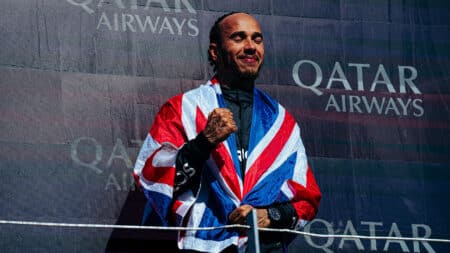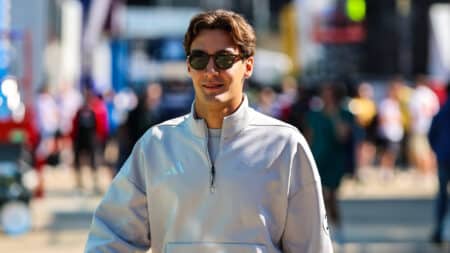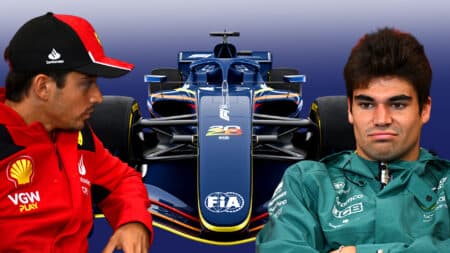The Q3 battle for pole was thrillingly unpredictable, with Piastri initially topping the times but failing to improve on his second run, which opened the door to Verstappen. Lando Norris spoke of “little mistakes”, costing hundredths of a second, which decided the session. Piastri thought he’d left “a little bit on the table — we’ll never know if it would have been enough”.
Ferrari will be encouraged by its pace, although disappointed that its drivers will be fifth and sixth at the start of the British Grand Prix.
Below is the provisional starting grid, including penalties for Bearman and Antonelli. This could change ahead of the race if penalties are applied or a driver needs to start from the pitlane.
2025 British Grand Prix starting grid
1 |
Max Verstappen Red Bull 1min 24.892sec Q3 |

|
2 |
Oscar Piastri McLaren 1min 24.995sec Q3 |
|
3 |
Lando Norris McLaren 1min 25.010sec Q3 |

|
4 |
George Russell Mercedes 1min 25.029sec Q3 |
|
5 |
Lewis Hamilton Ferrari 1min 25.095sec Q3 |

|
6 |
Charles Leclerc Ferrari 1min 25.121sec Q3 |
|
7 |
Fernando Alonso Aston Martin 1min 25.621sec Q3 |

|
8 |
Pierre Gasly Alpine 1min 25.785sec Q3 |
|
9 |
Carlos Sainz Williams 1min 25.746sec Q2 |

|
10 |
Kimi Antonelli Mercedes 1min 25.374sec Q3 (3-place grid penalty) |
|
11 |
Yuki Tsunoda Red Bull 1min 25.826sec Q2 |

|
12 |
Isack Hadjar Racing Bulls 1min 25.864sec Q2 |
|
13 |
Alex Albon Williams 1min 25.889sec Q2 |

|
14 |
Esteban Ocon Haas 1min 25.950sec Q2 |
|
15 |
Liam Lawson Racing Bulls 1min 26.440sec Q1 |

|
16 |
Gabriel Bortoleto Sauber 1min 26.446sec Q1 |
|
17 |
Lance Stroll Aston Martin 1min 26.504sec Q1 |

|
18 |
Oliver Bearman Haas 1min 25.471sec Q3 (10-place grid penalty) |
|
19 |
Nico Hülkenberg Sauber 1min 26.574sec Q1 |

|
20 |
Franco Colapinto Alpine 1min 27.060sec Q1 |
|
















